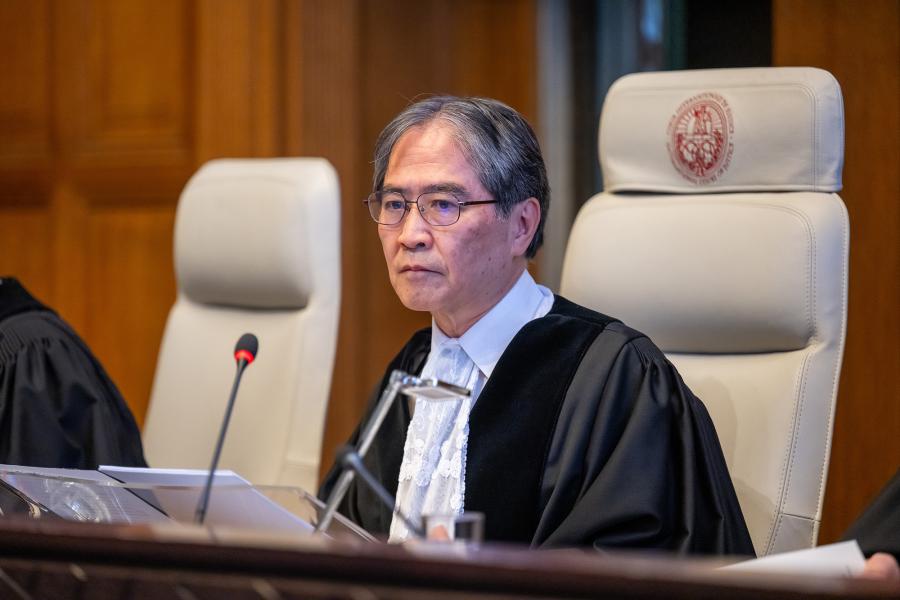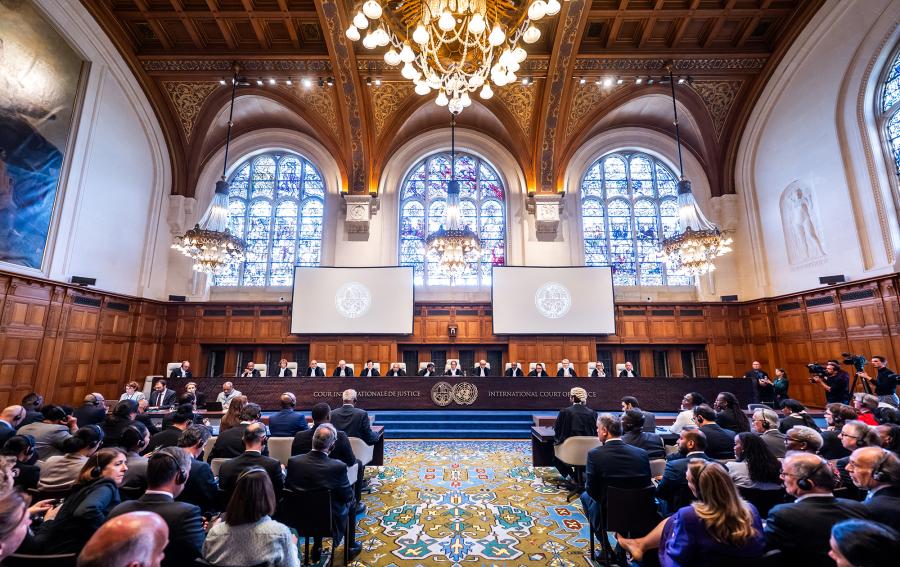Life & Law Join Up
Landmark new framework for all environmental cases going forward.

ICJ President Judge Yuji Iwasawa, Japan
On 23rd July 2025 The International Court of Justice issued an Advisory Opinion recognising that climate change caused mainly by fossil fuels is an existential threat, and confirms that all states share an obligation to keep global heating below 1.5C above pre-industrial levels.
This is a landmark event in human history. It was brought about by a unanimous request from the United Nations General Assembly three years ago, in response to a petition made by thirteen young law students from Vanuatu to the ICJ that the law must protect them from the existential threat of climate change.
As the statement was read those who had worked so hard with the students for more than a decade shed tears. Christina Figueres, a key figure in the implementation of the 2015 Paris agreement, left the room dancing and singing. This podcast is a must listen. It celebrates and shows howimportant the unanimous ruling is and underlines that this requires action from States: ICJ Climate Opinion Explained
The Advisory Opinion drew from existing international law including human rights law and treaty obligations. It looked at the Paris Agreement 2015 in the light of the agreed targets set out by subsequent Conferences of the Parties (biannual COP conferences). Its conclusion: global heating must stay within 1.5C above pre-industrial levels if we are to achieve the set targets. The 1.5C limit is based on reality rather than on convenience.
The final paragraph of the Advisory Opinion declares that the solution requires human will and wisdom to prevail:
Para 456: ‘the questions posed by the General Assembly represent more
than a legal problem: they concern an existential problem of planetary
proportions that imperils all forms of life and the very health of our planet.
International law, whose authority has been invoked by the General Assembly,
has an important but ultimately limited role in resolving this problem. A
complete solution to this daunting, and self-inflicted, problem requires the
contribution of all fields of human knowledge, whether law, science, economics
or any other. Above all, a lasting and satisfactory solution requires human
will and wisdom — at the individual, social and political levels — to change
our habits, comforts and current way of life in order to secure a future for
ourselves and those who are yet to come. Through this Opinion, the Court
participates in the activities of the United Nations and the international
community represented in that body, with the hope that its conclusions will
allow the law to inform and guide social and political action to address the
ongoing climate crisis.’
187-20250723-adv-01-00-en.pdf
For a full summary see ICJ Advisory Opinion
The Advisory Opinion concludes ‘with the hope that its conclusions will allow the law to inform and guide social and political action to address the ongoing climate crisis.’
It is now up to all of us to make this happen.

courtesy of IISD 23 July 2025